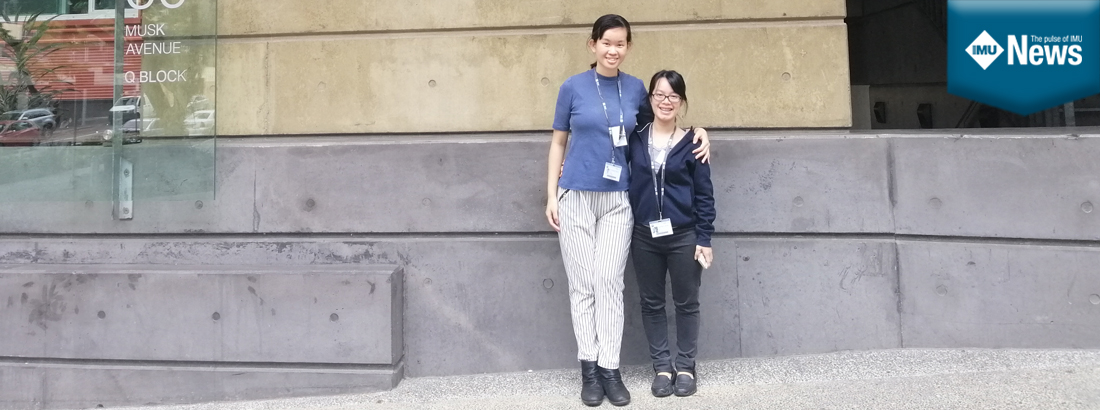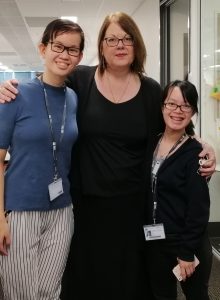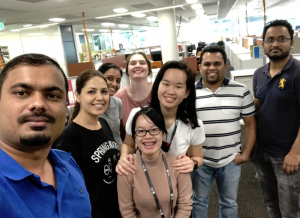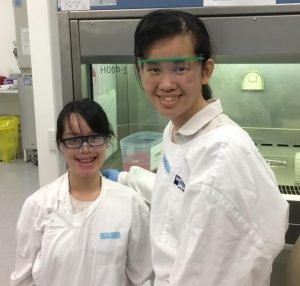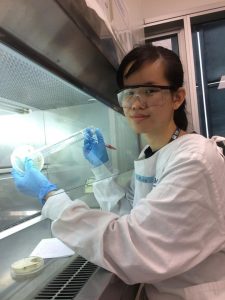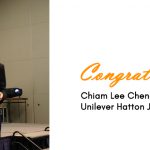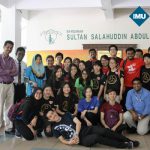Two IMU final year pharmacy students, Laura Soon Cheau Ling and Phui Qi Ng collaborated with a premier University based at Queensland, Australia for their undergraduate research project: The Queensland University of Technology/Institute of Health and Biomedical Innovation (IHBI). Their research project focused on assessing the anti-inflammatory and cytotoxicity potential of a Chinese traditional herb Artemisia vulgaris in a nano-formulation. The collaborative research team include Dr Dinesh Kumar C (IMU), Dr Jithendra Panneerselvam (IMU), Dr Thiagarajan Madheswaran (IMU), Dr Trudi Collet (QUT), Dr Kamal Dua (UTS/HMRI, UoN). The Institute of Health and Biomedical Innovation is a multidisciplinary health and biomedical research institute devoted to improving the health of individuals and communities through research innovation.
Laura shared her research experience in QUT, “It was an absolute pleasure working with Dr Trudi Collet and her team- the Indigenous Medicine Group (IMG) in IHBI. Indigenous Medicine Group is a research team that conducts research on the medicinal properties of Australian native plants. Our research scope was on the assessment of wound healing potential consisting of anti-inflammatory, anti-bacterial and cytotoxic tests.”
“Although our final year project was mainly focused on testing the anti-bacterial effects of our formulation, we also had the opportunity to observe how the other biological tests were performed. One of the tests demonstrated was the cytotoxic test, which I found fascinating, to see how the human keratinocyte cell lines (HaCaT) were carefully grown and then tested with formulations using the MTT or CyQUANT assays. We also managed to perform the disc diffusion, minimum inhibitory concentration (MIC) and minimum bactericidal concentration (MBC) tests to assess the anti-bacterial effect of our formulation.” “The research laboratory is spacious, well-organised and well-equipped with high-end machines and good facilities, which has allowed us to work productively in a comfortable environment. Dr Trudi and her team have shown their full support in our work and were very helpful throughout our project. With their guidance, we have learned to think critically, perform effective literature searches and to be pro-active in our research and laboratory work. This experience has shaped us into better researchers and we can definitely benefit from it by applying the knowledge gained to our future clinical or research-based work.”
Phui Qi agreed to this and added, 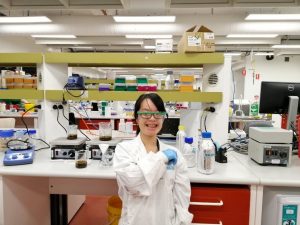 “I had a wonderful learning experience working at IHBI in QUT where I was given the opportunity to learn various laboratory skills from Dr Trudi and her team in executing our project as well as the technique of doing antibacterial test and cell culture. Our project involved testing the formulation on bacteria that are commonly found in wounds, we had the chance to use multi-channel pipettes and electronic pipette filters which enabled us to do our plate filling easier and quicker. Another bonus is that we get to know researchers (PhD students) from different parts of the worlds, which is helpful to build our professional network.” “Looking back, taking part in this collaborative project was truly one of the best and most fruitful experience in our degree years. Both of us would like to thank Dr Trudi Collet and the IMG team for their guidance and support throughout our journey in QUT. We would also like to express our heartfelt gratitude to IMU and all of our supervisors who made it all happen.”
“I had a wonderful learning experience working at IHBI in QUT where I was given the opportunity to learn various laboratory skills from Dr Trudi and her team in executing our project as well as the technique of doing antibacterial test and cell culture. Our project involved testing the formulation on bacteria that are commonly found in wounds, we had the chance to use multi-channel pipettes and electronic pipette filters which enabled us to do our plate filling easier and quicker. Another bonus is that we get to know researchers (PhD students) from different parts of the worlds, which is helpful to build our professional network.” “Looking back, taking part in this collaborative project was truly one of the best and most fruitful experience in our degree years. Both of us would like to thank Dr Trudi Collet and the IMG team for their guidance and support throughout our journey in QUT. We would also like to express our heartfelt gratitude to IMU and all of our supervisors who made it all happen.”




